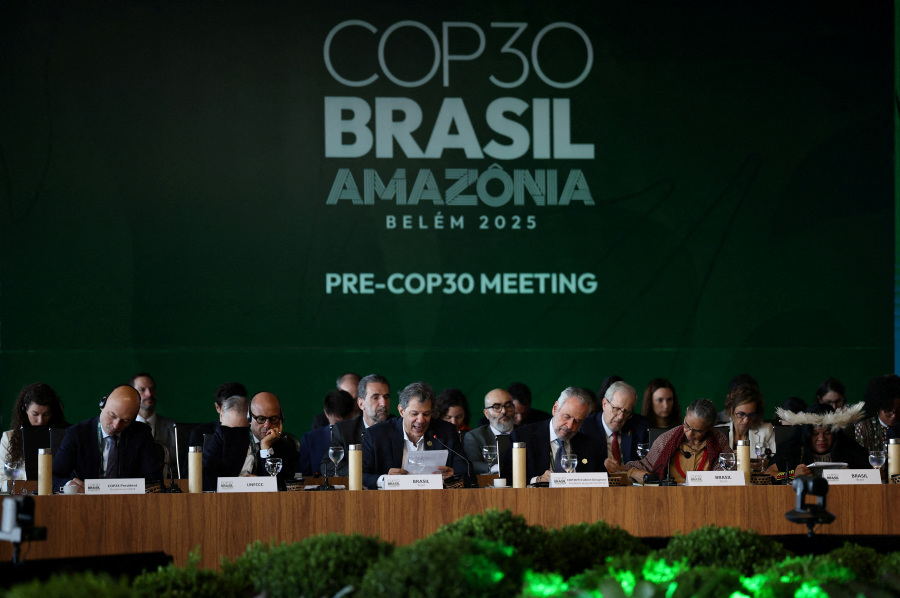WASHINGTON (Reuters) -The U.S. will not send any high-level officials to the upcoming COP30 climate summit in Brazil, a White House official told Reuters, alleviating some concern among world leaders that Washington would send a team to scupper the talks.
Brazil will host a high-level leaders' summit next week before the two-week UN climate negotiations begin in the Amazonian city of Belem.
Earlier this month, the U.S. threatened to use visa restrictions and sanctions to retaliate against nations that would vote in favor of a plan put forward by the United Nations shipping agency, the International Maritime Organization, to reduce planet-warming greenhouse gas emissions from ocean shipping.
Those tactics led a majority of countries at the IMO to vote to postpone by a year a decision on a global carbon price on international shipping.
The White House official said President Donald Trump has already made his administration's views on multilateral climate action clear in his speech at last month's United Nations General Assembly, where he called climate change the world's "greatest con job" and chided countries for setting climate policies that he said "have cost their countries fortunes."
"The President is directly engaging with leaders around the world on energy issues, which you can see from the historic trade deals and peace deals that all have a significant focus on energy partnerships," the White House official told Reuters in an email.
The Trump administration has pursued bilateral energy deals in its trade negotiations to boost U.S. liquefied natural gas (LNG) exports with countries like South Korea and the European Union.
On Friday, U.S. Energy Secretary Chris Wright said there is "room for great energy trade between China and the United States" given China's need for natural gas as the two economic giants negotiate over tariffs.
Trump announced on his first day in office that the U.S. would exit the 10-year old Paris climate agreement, taking effect in January 2026 and the State Department has been reviewing the U.S.' engagement in multilateral environmental agreements.
Earlier this year, the U.S. also pressured countries negotiating a global treaty to reduce plastic pollution not to back an agreement that would set plastic production caps.
The White House official told Reuters that "the tide is turning" on prioritizing climate change, pointing to a memo circulated this week by billionaire and long-time climate philanthropist and investor Bill Gates, who said it is time to pivot away from focusing on meeting global temperature goals and that climate change will "not lead to humanity’s demise."
(Reporting by Valerie Volcovici; Editing by David Gregorio)











News magazine bootstrap themes!
I like this themes, fast loading and look profesional
Thank you Carlos!
You're welcome!
Please support me with give positive rating!
Yes Sure!